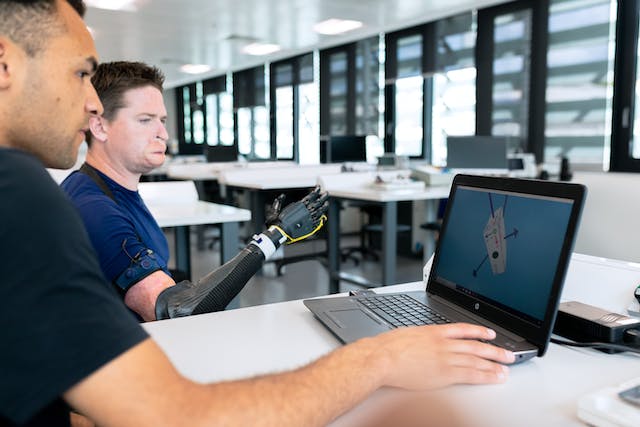Ever since a bamboo shoot was fashioned into the first-ever scalpel, surgical developments have only been getting better. Over the last hundred years, new technology has only further pushed surgical innovation.
Whether it’s the award-winning medical retractors from June Medical or the streamlined health software from CareCloud, surgeries from dental restorations to thoracic aortic dissection repair have been made safer than ever before.
But innovation is not always a good thing. In the world of healthcare especially, there’s a fine line between innovation for the sake of industry betterment and innovation for the sake of innovation. According to many people, AI might just fall into the latter category.
The Rapid Advancement Of AI
Over the last two years, the conversation revolving around AI has only got louder. With the introduction of groundbreaking technologies like ChatGPT, machine learning platforms, and virtual agents, it feels like every industry is trying to get their hands on the latest AI capabilities to advance further.
One of these industries is, of course, the healthcare industry. To be fair to the market leaders, there are many benefits that AI technology can offer healthcare to make the patient experience better, but there are also negatives that cannot be ignored.
What Are The Benefits Of AI In Healthcare?
One of the best things about AI in healthcare is its ability to harness, understand, and learn from data. When it comes to patients, AI can track their data far more quickly and efficiently, potentially ending long wait periods or information being missed.
Through machine learning, this data can be connected – even if disparate – to gather an informed, unified view of the patient’s health status.
For professionals, AI can also support and guide decisions with detailed analytics that would previously have been unavailable. This decreases the risk of human error and can make the entire healthcare process proactive, rather than reactive.
What About The Negatives?
In a recent interview, the assistant professor of law at Pennsylvania University, Sara Gerke, stated that many issues in healthcare’s use of AI “are specific to surgery”.
As any surgeon will know, the process of surgery – specifically major surgeries like organ transplants, tumour removals, or open heart surgery – is intensely focused and pressurised.
If AI was used to assist this process, then it would be giving recommendations in real-time. In real-time, however, a surgeon won’t have the time required to evaluate the recommendation and decide whether it is appropriate.
This means that many surgeons may follow a recommendation almost blindly, and considering AI is still at risk of bias and misinformation, this could have very negative consequences.
The Balance Needed For Success
On the other side of the coin, surgeons might be reluctant to follow AI guidance without fully processing it, which could waste vital seconds during the surgery, or could even make the surgery unsuccessful if the AI turns out to be correct.
There is a fine balance that must be made between human capabilities and AI. At this present moment, the imperfect and unregulated nature of AI makes it more of a risk than a benefit to surgeries, which is why it is important that the healthcare industry holds off in this area until it is fully regulated and understood.
As things are going, this could be very soon. Or it might not happen at all if that perfect balance cannot be found. At this point, only time will tell.
Also Read: Vasectomy Reversal Success Rate: Understanding Your Chances of Fertility Restoration


